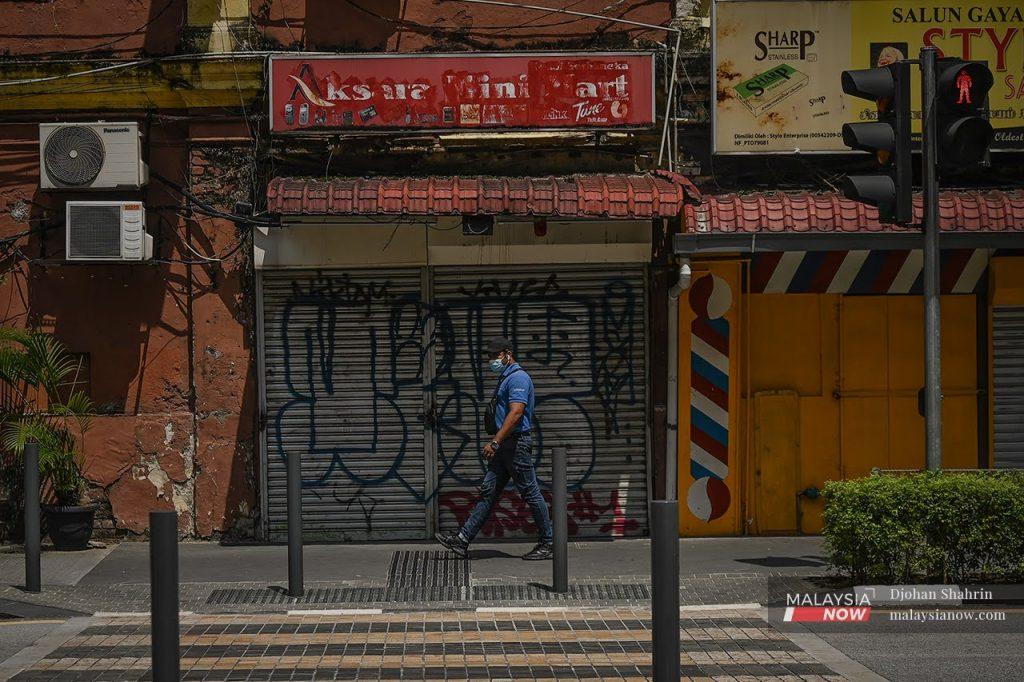Bottom-up understanding of justice needed to protect national sovereignty
While it is true that certain opinion makers have exaggerated opinions, it is equally important to see justice from the perspective of ordinary people on the ground.
Just In
I agree but at the same time am disappointed after reading the article by Chandra Muzaffar on the Covid 19 crisis questions and motives.
Chandra has rightly said that differences of opinion should not lead to extreme positions which are not supported by facts or realities on the ground.
While I support these assertions, Chandra seems to be unaware that he too has certain biases towards certain leaders or civil society, or assumes that only certain parties are capable of protecting the country’s national sovereignty. Of course, assertions like “failed state” are exaggerated.
Many activists are critical of the current government, but they are also aware of hegemonic designs. These activists who are with the people are part of reality and need a journalist to provide facts and figures on the hardships of the Malaysian people due to the Covid-19 pandemic. One has to go to the ground to understand justice, not merely write from an academic point of view that focuses only on certain dimensions that do not do justice to other equally important areas.
The current government critics are concerned about a bloated, expensive cabinet, formed from unethical political manoeuvring; some MPs being appointed as chairmen of GLCs and seen to be incompetent; people who are in detention, dying without any credible and impartial investigation; double standards in the enforcement of SOPs; the lack of foresight and slowness in understanding the economic situation of the common people and realities of industries; and the use of race and religion to stay in power at all costs.
These are realities and facts that have impact on the ground, even though the government has come up with various forms of aid.
We see a state of emergency that was put in place to manage the Covid-19 pandemic effectively, but which witnesses an exponential increase in cases while the political elite were protected from public accountability in Parliament.
The people on the ground who have lost their income and jobs will naturally speak from a bottom-up situation, and some of them are certainly not in the state of mind to understand US and China rivalry in the critical situation of survival.
One also wonders how national sovereignty can be protected by a government that is formed on unity among ethno-religious elites, that threatens civil societies with detention each time malpractices are exposed.
While it is true that certain opinion makers have exaggerated opinions or that there is a crisis manufactured by hegemonic powers, as seen in Cuba, it is equally important to see justice from the perspective of ordinary people on the ground, instead of holding on to an extreme exaggeration, that people who oppose the current Perikatan National government are aligned with certain personalities who are assumed to be working with hegemonic powers.
There is a complex dynamism of opposition to the current government that cannot be understood by labelling.
It’s time for Chandra to speak up on issues of human rights and domestic justice, because if people experience the sense of justice in their own country, where Article 8 of the Federal Constitution of equality before the law is cherished by the political elite, when unity of all Malaysians is desired, instead of ethno-religious dominance and exclusivity, we will be in a far better position to protect our national sovereignty since hegemonic powers will have no credible issues with which to destabilise the country.
Ronald Benjamin is secretary of the Association for Community and Dialogue.
The views expressed in this article are those of the author(s) and do not necessarily reflect the position of MalaysiaNow.
Subscribe to our newsletter
To be updated with all the latest news and analyses daily.
